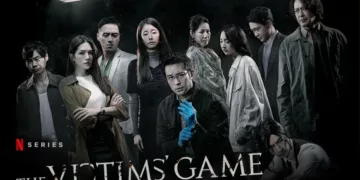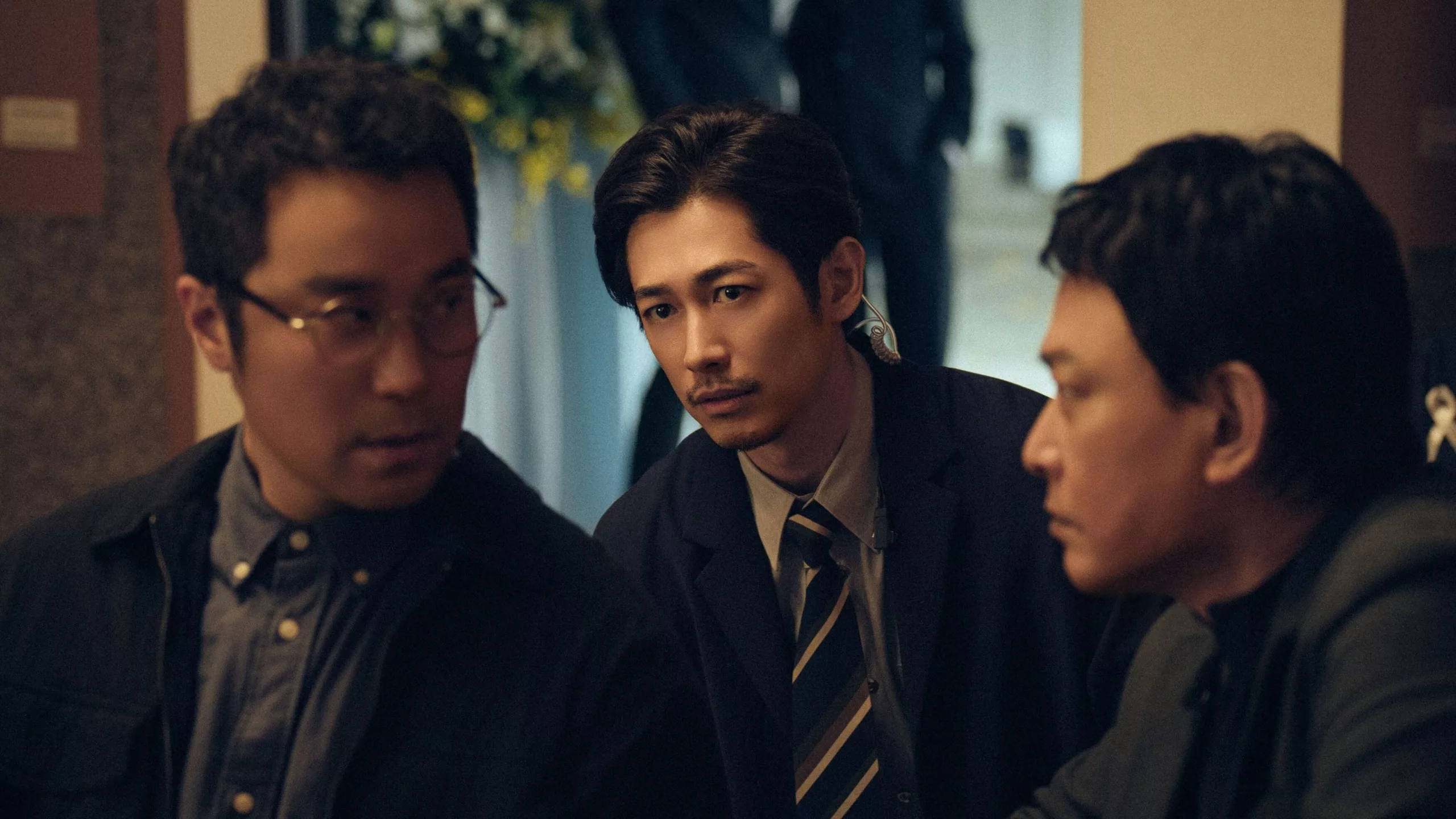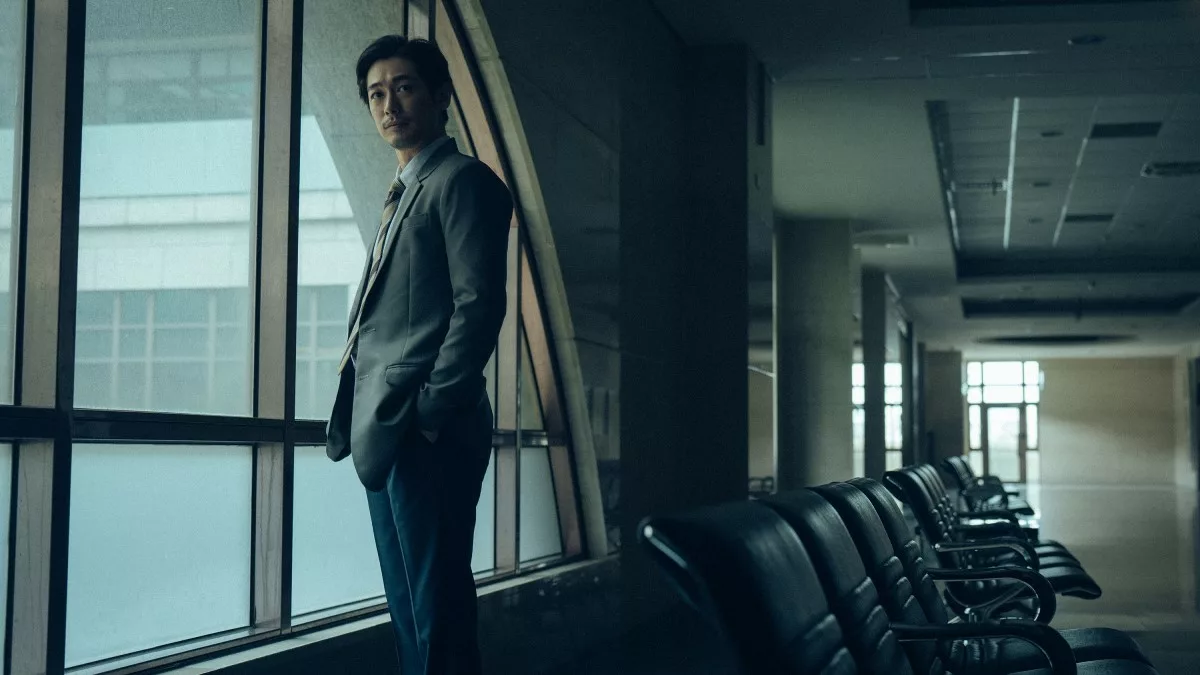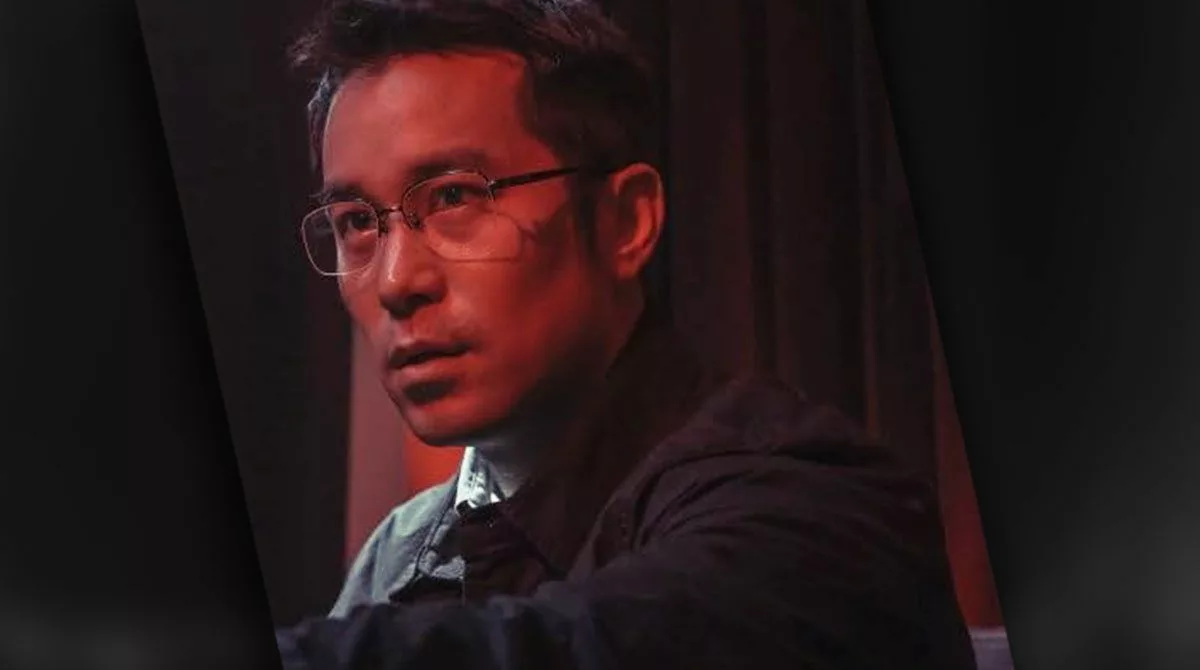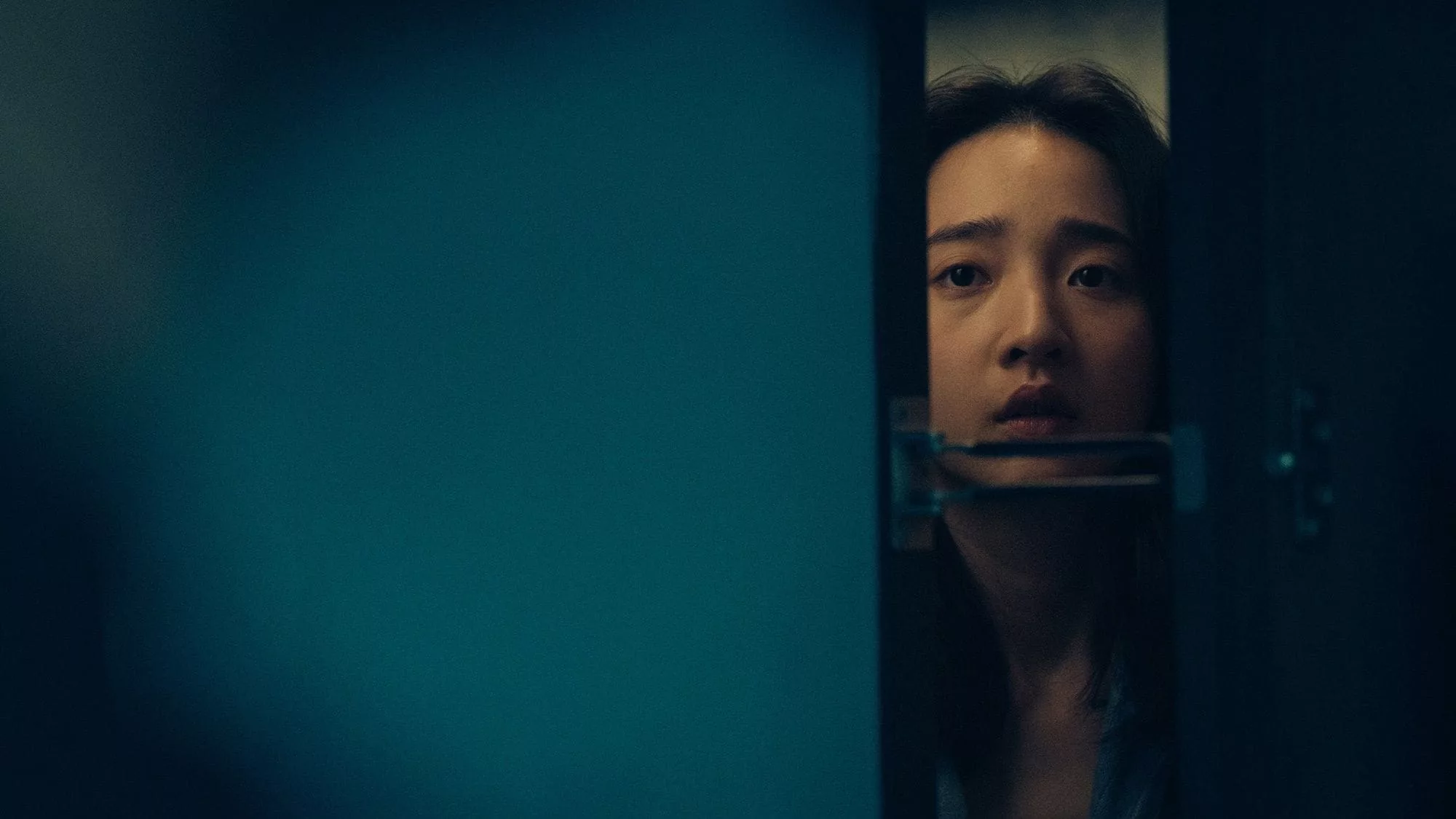The Taiwanese crime series Victims’ Game once again delves into darkness with its sophomore season. Forensic investigator Fang Yi-Jen finds himself pulled back into his old life when a decades-old murder case is reopened. New evidence points to troubling revelations about the original investigation handled by Fang’s late mentor. But as disturbing murders begin occurring in the present, Fang soon becomes a prime suspect himself.
Now removed from active police work, Fang struggles to leave his past behind. But justice and truth are not so easily escaped. Along with journalist partner Hsu Hai-Yin and daughter Hsiao-Meng, Fang must venture back into the shadows to solve the mysteries entangling his life. What began as a quest for answers gradually exposed even deeper wounds that time could not heal.
Through it all, Victims’ Game retains its strengths of nuanced characters and suspenseful storytelling. Joseph Chang leads the cast with another outstanding performance as Fang, showing both the brilliant detective and the haunted man beneath. Viewers, once again drawn into the show’s moody atmospheric world, kept guessing around each dark twist and turn. While season 2 brings newer layers of complexity, Victims’ Game proves once again to be a series that focuses first on the real human hearts behind the crimes.
Victims’ Game Season 2: Old Mysteries and New Threats
Forensic investigator Fang Yi-Jen thought he had left his past behind. But the past has other plans for Fang. A decade-old murder case is reopened, throwing doubt on the work of Fang’s late mentor. At the same time, a disturbing string of new killings seems to target those connected to the cold case.
As bodies pile up with macabre surgical souvenirs removed, Fang is pulled back into the investigative world he had exited. A new prosecutor questions Fang’s competence in the old case and even brands him a suspect. Along with journalist Hsu Hai-Yin and medical examiner Dr. Hsueh Hsin-Ning, Fang must race to unravel the grisly details of these interlinked crimes.
Personal stakes are higher than ever for Fang. His daughter, Hsiao-Meng, remains haunted by her past involvement with a doomsday cult. She now finds herself endangered by the murderer’s twisted games. Fang struggles to balance his duty to the investigation with his efforts to reconnect with his daughter.
Season two delves deeper into Fang’s backstory. Flashbacks reveal his origins as a gifted student mentored by the late detective Lin. These revelations shed new light on events from the first season. At the same time, numerous twists emerge from the reopened case files that challenge everything Fang thought he knew.
The killer taunts authorities by targeting family members of those connected to the original tragic crime scene. Uncanny surgical skills and cryptic clues are the murderer’s calling cards. As the body count rises, Fang races to outmaneuver this adversary before it’s too late for those he cares about.
This season builds intense stakes on top of the story foundations laid in season one. Viewers are pulled into a twisting web where no character is safe and no lead can be trusted. Told across eight gripping episodes, Victims’ Game season two is a suspenseful continuation that leaves audiences on the edge until the final, shocking truths are revealed.
Victims’ Game Season 2: Compelling Characters in a Dark World
One thing that draws viewers into any crime drama is compelling characters. The Victims’ Game season two delivers in this area with nuanced performances that keep audiences invested in its dark story.
Chief among the talented cast is Joseph Chang’s portrayal of forensic detective Fang Yi-Jen. Viewers see Chang bring layers of vulnerability and intellect to this complex role. Fang grapples with trauma from his past while navigating new dangers. Chang imbues even Fang’s brusque moments with a sensitivity that engages empathy.
Ann Hsu is equally strong as her journalist partner, Hsu Hai-Yin. Where Fang isolates emotionally, Hai-Yin connects through compassion. Hsu paints her with a gritty realism that grounds heavier plots. She and Chang also share an effortless chemistry central to many narrations.
Moon Lee gives a shining performance as Fang’s daughter, Hsiao-Meng. Still bearing scars from past ordeals, Lee makes Hsiao-Meng’s resilience and growing trust in her father feel deeply rewarding to witness. Importantly, no character feels defined by trauma alone.
New additions like Dr. Hsueh Hsin-Ning, played by Tarcy Su, quickly become fan favorites. Su brings an alluring blend of medical dedication and hidden vulnerability that pairs beautifully with Fang. Their rapport introduces new emotional dynamics that sustain drive throughout later episodes.
Perhaps most impressive is how Victims’ Game remains expert at exploring character flaws without stripping protagonists of likability. Fang’s brusqueness or Hsin-Ning’s occasional detached veneer feel authentic without accusations of stereotyping. Their humanity always shines through, even in the darkest moments.
Season two also thrives by deepening the backstories introduced in its predecessor. Flashes into Fang’s past, portrayed by a brilliant young Chang, give viewers new eyes for understanding his present-day actions and reactions. Supporting roles feel fuller rather than simply functional.
It’s a testament to the strength of these characters and their portrayals that Victims’ Game season two entertains while delving into heavy themes of grief, trauma, and moral gray areas. Authentic and compelling characters are this crime drama’s beating heart and what keeps its mysteries worth unraveling episode after episode.
The Gripping Visual Style of Victims’ Game
Big kudos to the team behind the visuals in Victims’ Game. Director David Chuang knows how to set a mood; every scene oozes atmosphere. He was framing shots with such precision, drawing out the tension. Nothing feels like an afterthought.
You really feel like you’re stepping into Fang’s world of mysteries with each episode. And it’s not a place I’d want to linger! The cinematography embraces the shadows in a way that gets under your skin. It shows just enough to let your mind fill in the blanks.
Every location, from police stations to crime scenes, feels authentic. You can picture yourself in those spaces. And the design backs up the eerie plot perfectly. It’s like the set designers read the scripts and crafted mirrors of Fang’s unsettling cases.
Even the smallest moments pack power because of how they’re captured. You notice tidbits in the backgrounds that add extra layers, just like how Fang pieces together clues. It’s easy to get swept up in his analytical view of events on screen.
If the visuals do their job of ratcheting up the suspense, the soundtrack seals the deal. It knows just when to kick in, enhancing key emotional beats without overstating them. Sometimes a light theme is enough to turn a conversation on its head.
It’s clear a ton of care went into Victims’ Game to blend all these elements cohesively. Because of that, it feels so easy to picture yourself in Fang’s grim searches for truth. The unnerving yet compelling results are definitely worth seeing for any fan of crime shows.
Deeper Themes and Character-Centric Storytelling
The Victims’ Game delves into some meaningful themes this season. It explores how trauma affects people in different ways and the struggle to find redemption. Fang, in particular, is searching for the truth to make things right after past mistakes.
His relationship with his daughter shows this best. You really feel the tension between them after the cult situation. But there’s also love below the surface and a desire to reconnect. The show portrays their ups and downs so genuinely. It’s not like everything heals instantly; rebuilding trust takes time.
Fang’s quest brings these themes to the forefront. He has to reexamine this old murder case to clear his name. But it’s personal too—a chance to make amends in a way. You get the sense he’s driven partly by a need to understand the lives affected and find answers those families deserve.
What makes Victims’ Game so captivating is marrying these deeper elements to compelling characters. The plot moves at a good clip, but it’s always anchored by strong people working through layered motivation. Fang, especially—you really sympathize with his drive despite his shortcomings relating to others.
The balance of procedural and personal investigation feels realistic. Clues tie back to who these victims were, so solving the case helps resolve emotional arcs too. Scenes shift seamlessly between police work, forensics, and the personal costs each new revelation brings.
Of course, juggling so many moving parts means occasional uneven pacing. Some B-plots could be trimmed to streamline the constantly twisting story. Too many characters at times risked muddying the waters.
Still, Victims’ Game stands out for giving space to let characters breathe amidst the suspense. The reward is caring deeply about their resolution, on top of just seeing whodunnit. When it succeeds in both spheres, it’s truly gripping stuff.
This season proves Victims’ Game knows how to craft a criminal drama with heart. Fans of complex characters navigating intense situations will find much to appreciate in its thoughtful continuation.
Return to Fangs Grisly World
Victims’ Game season 2 finds its footing right away, even with longer episodes this go around. I remember season 1 messing me up—the creepy cult got under my skin. But this season tells an even bleaker story while developing the characters more.
Fang goes deeper into solving deadlier murders, revisiting an old case that left him shaken. You can feel his drive to understand the victims and find justice for their families. Even when things look bad for him, he never wavers in his belief in the truth. I admired that about him last season too.
What’s different now is learning more about Fang personally. Flashbacks show how a teacher influenced his mind for detail and got him hooked on investigations. Filling those gaps makes Fang more rounded instead of just having obsessive behavior.
The show also delves deeper into Hsiao-meng, Hsu, and others close to Fang. Seeing how they support each other through trauma is touching. All the personal stakes make Fang’s mission feel weightier than in season 1.
The gritty details of death remain hard to watch. But looking past horror to humanize victims—that’s what sets this apart. No one is simply a body; they each had a life that mattered. Fang honors that in his relentless sleuthing.
All the returning cast members nail their intricate roles. The crazed killers were surprised too! Overall, Victims’ Game raises its game, upholding its reputation for strong Asian storytelling. Fans will find this second dose just as gripping.
Returning to Solve More Than Crimes
What started as a revisit to an unsolved case turns into so much more for Fang Yi-jen. Beyond clearing his name, he seeks the kind of truths that haunt the soul. This season showed that his relentless drive to honor the dead doesn’t stop at catching killers.
Yi-jen’s journey brought him face-to-face with personal demons too. The kind that lurks in past mistakes and frayed family bonds. In repairing those bonds, he found redemption, as did we in his humanity.
Make no mistake, gruesome murders fuel the storyline. But Victims’ Game proves TV need not stop at shock value. It explores how trauma wounds and heals. Though the pace dragged at times, the emotions felt authentic.
Were it not for the complex characters and their poignant arcs, convoluted twists could’ve sunk the whole affair. As it stands, the highs of personal growth outweigh the lows of confusing clues. Joseph Chang and company ensure we root for Yi-jen to the very end.
For all its flaws, Victims’ Game stays with you through empathy, not gore. It sets a bar for nuanced Asian storytelling that moves as well as thrills. Season two delivers satisfying closure while navigating heavy themes with care. Fans of well-crafted TV won’t want to miss it.
The Review
The Victims' Game Season 2
Beneath the gruesome murder mysteries lies a story of human empathy and the redemptive power of truth. Season two builds on season one's strong characters and atmospheric storytelling. While the narrative gets convoluted at times, Joseph Chang's emotionally nuanced performance as Fang Yi-jen anchors the season's poignant exploration of trauma's echoes.
PROS
- Complex, emotionally compelling characters
- Addresses difficult themes with care and insight
- Atmospheric cinematography and production quality
- Engrossing mysteries despite flawed plotting
- Gripping central performance from Joseph Chang
CONS
- The narrative becomes convoluted and uneven in pacing.
- Excessive violence and gore may disturb some.
- Overly intricate plot lines are hard to follow.
- Underdeveloped secondary characters
- Slow middle episodes hurt momentum.
